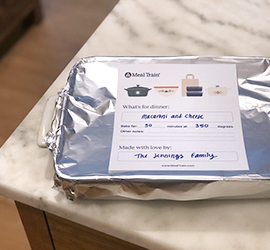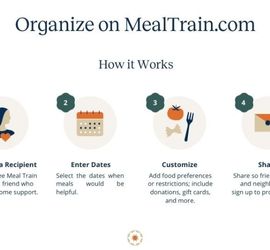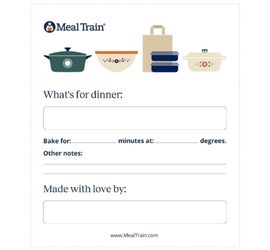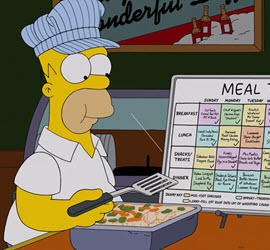“It will get better” is not empathy. Empathy is the ability to understand and share the feelings of another. It goes far beyond sympathy, which is simply feeling for someone. With empathy, you’re feeling with them.
How to show empathy
A lot of people struggle with empathy and the ability to imagine what someone else may be thinking or feeling in a situation. While it may take a little while to learn, empathy is vitally important in difficult situations. Here’s a guide to empathy during difficult times that you can use during Meal Train drop-offs or when talking to someone shortly after they’ve experienced a tragedy.
Listen to understand
When you go to someone’s house to deliver a meal, you don’t need to show up with a list of rehearsed lines. Most people who have just been through a hard time just need someone to listen to them. They want to feel heard. Listening is one of the best ways to show empathy, so lend your ear.
Ask to show interest
Reevaluate the questions you ask out of politeness like “How are you?” or “How was your day?
These questions can and should be asked out of curiosity — seeking to understand how that person is truly doing. At the core of empathy is curiosity. As a human being, you need to dig deeper into others’ lives and show you’re interested in what they have to say. When you deliver a meal, demonstrate your genuine interest in how someone is doing.
Show up to be present
We all know what it’s like to talk to someone physically present but mentally absent. When you deliver a meal, show up and be present for the recipient. Leave your phone in the car and offer them your full attention for the 10 to 15 minutes that you’re dropping off the meal. If they want to talk about their experience or take their mind off their situation by hearing about your day, offer them the gift of conversation.
Refrain from offering advice
Most people offer advice with good intentions. They see someone in a difficult place, and they want to make the situation better. Unfortunately, unsolicited advice can come across as hurtful to those going through a tough time. If someone is struggling, they likely just need someone to understand them…not someone telling them what to do.
Offer additional support
You’re already offering your assistance if you’re dropping off a meal to the recipient. However, you can go above and beyond by letting them know you’re here for even more. Look around their home and see if there’s another task that could be done. Could you offer to walk their dog? Pick up their kids? Stop by just to keep them company? It can never hurt to offer.
Final thoughts
If you’re struggling with what to say or do, don’t fret. Staying in the moment and responding genuinely to someone’s grief or stress can be a significant source of comfort.





















































